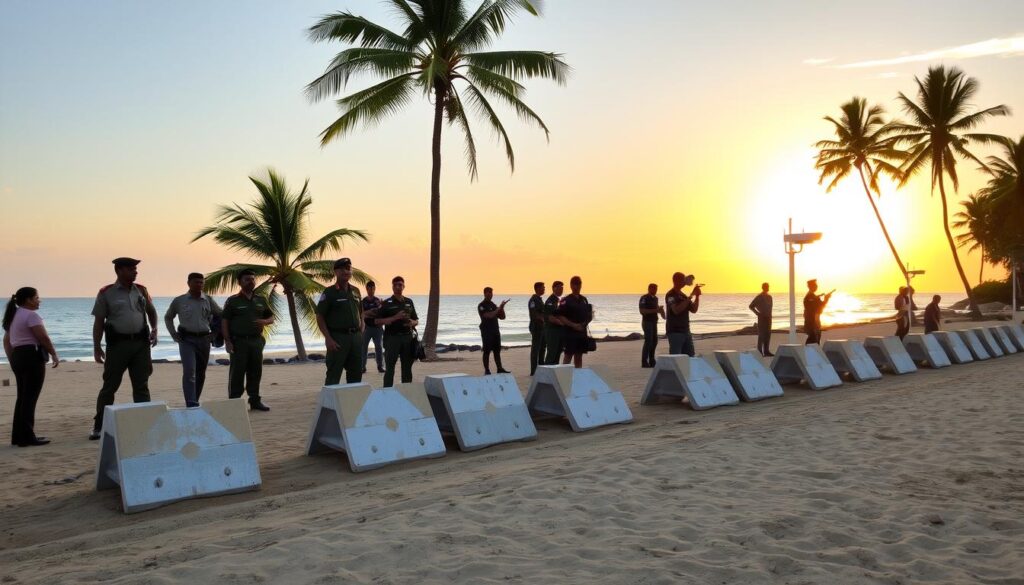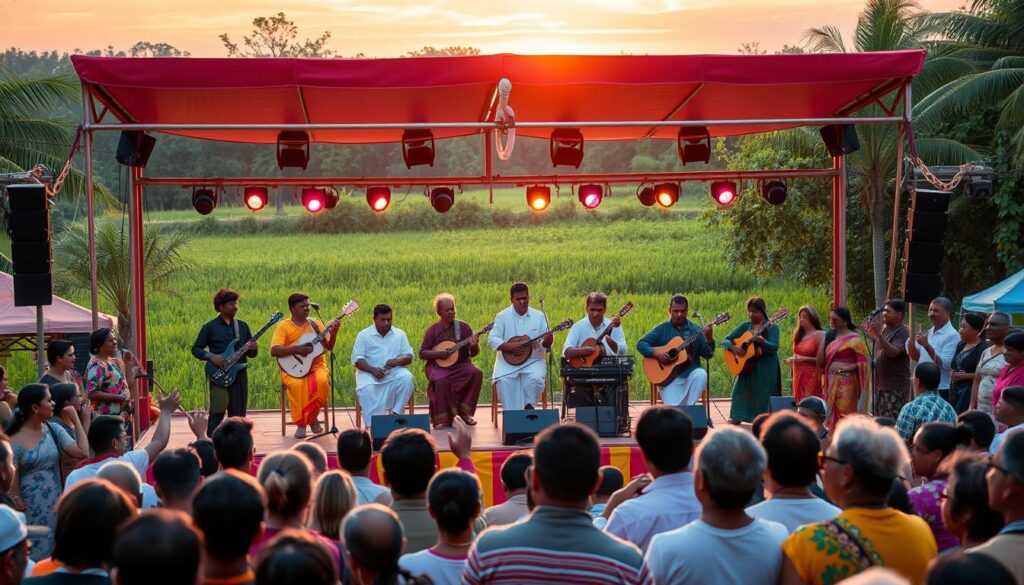Sri Lanka Names Hans Wijayasuriya as Digital Economy Lead
OMP Sri Lanka has announced a significant step in the country’s digital journey. Dr. Hans Wijayasuriya has been chosen as the Chief Advisor on Digital Economy by the president. This key appointment by President Anura Kumara Dissanayake highlights the country’s dedication to leading in technology. It also shows its efforts to transform its digital space.

Dr. Wijayasuriya brings a wealth of experience from his time as Axiata Group’s General Executive Director. His global recognition, including the top GSMA Chairman’s Award in 2024, will greatly benefit his new position. With this role, Sri Lanka is starting a new chapter in its digital journey. The aim is to boost growth and improve public services with new technology.
Work on economic recovery is moving forward, and Dr. Wijayasuriya’s vision is expected to be key for empowering Sri Lankans digitally. By taking on this important advisory role, he will wrap up his successful time with Axiata by January 2025. This move marks a major shift from his corporate achievements to serving the nation in the technology field.
Sri Lanka Appoints Axiata GED Hans Wijayasuriya as Chief Digital Economy Advisor
Sri Lanka has made a key move by naming Hans Wijayasuriya the Chief Digital Economy Advisor. This important step is set to boost the country’s role in the digital world and enhance its global standing. It shows Sri Lanka’s eagerness to lead in tech among developing countries.
Appointment Marks a Transformational Shift for Sri Lanka’s Digital Landscape
Dr. Wijayasuriya starts his role on November 1, 2024. He brings vast knowledge, especially from the financial world. This matches well with Sri Lanka’s goals of promoting tech and innovation in telecom. On his first day, the local currency strengthened, showing more investor confidence, particularly in finance.
Empowering a National Vision: Toward a Digitally Advanced Sri Lanka
With Dr. Wijayasuriya’s leadership, Sri Lanka aims to launch major digital updates. These plans are to upgrade infrastructure and make tech widely available, improving living standards and job chances for everyone. His experience in emerging markets and digital fields will likely lead to significant progress.
Public-Private Synergy: Wijayasuriya’s Role in Digital Policy and Advisory
Advancing digitally needs teamwork between the government and private companies. Dr. Wijayasuriya will head the ICTA of Sri Lanka, focusing on starting strong and creating solid policies. His role aims to synchronize Sri Lanka with global digital developments, promoting growth and tech empowerment.
Sri Lanka has also gained major global support, for example, a $1 billion World Bank loan. This shows the world’s trust in Sri Lanka’s recovery and growth plans. It’s a step towards building a vibrant digital economy.
Having Hans Wijayasuriya as the Chief Digital Economy Advisor is crucial for Sri Lanka. His insight and strategy are key to bringing in a digital age of success. He’s expected to blend economic strength with tech innovation seamlessly.
Hans Wijayasuriya’s Legacy in Telecommunications and Digital Solutions
Dr. Hans Wijayasuriya has led for over 30 years in the Axiata Group. He has made a big impact on global mobile communication. This is shown by his GSMA Chairman’s Award in 2024. He now focuses on Sri Lanka’s digital economy growth. By being the Chief Advisor to the President on Digital Economy, his telecommunications expertise will help the country. Sri Lanka faces challenges like the need for skilled software experts which it currently lacks. Dr. Wijayasuriya is key in meeting the IT industry’s growing demands.
To improve the IT workforce, there is a focus on digital innovation. This aims to boost the economy and stop the brain drain by offering good jobs to the young and encouraging them to start businesses. Dr. Wijayasuriya’s work is seen in Dialog Axiata and Axiata Digital Labs. These efforts show his lasting effect on Sri Lanka’s telco and digital areas. He advises the nation to use innovation to enhance international trade. This will help with currency issues and reduce the banking sector’s reliance on the falling rupee.
Sri Lanka is changing its laws, with the 21st Amendment passed. This shows its commitment to fair laws and chances for everyone. The nation is trying to improve in areas like banking and IT. Groups like the Commonwealth Union Ltd. and Appé Lanka help poor communities in Sri Lanka. The President’s Media Division says Dr. Wijayasuriya’s role is very important. As Sri Lanka plans to dissolve its Parliament for elections, it looks forward to new laws and policy changes.




